Ci2i Chairs
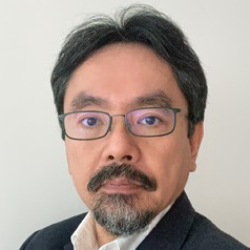
Naoto Hirano
Dr. Naoto Hirano received his MD and PhD from the University of Tokyo, followed by post-doctoral training at the Dana-Farber Cancer Institute, Harvard Medical School. He currently serves as the Tier 1 Canada Research Chair in Immunology to Immunotherapy and previously held the Amgen Chair in Cancer Research at Princess Margaret Cancer Centre, University Health Network. At Princess Margaret, he occupies multiple leadership roles, including Chair of the Immuno-Oncology Program, Co-Chair of the Centre for Immunology to Immunotherapy (Ci2i), Associate Director for Research of the Tumor Immunotherapy Program (TIP), and Senior Scientist. Additionally, Dr. Hirano holds an appointment as Professor in the Department of Immunology at the University of Toronto and serves as Co-Director of the Toronto Human Immunology Network, a Federation of Clinical Immunology Societies (FOCIS) Center of Excellence. His research centers on developing innovative immunotherapies to bridge the gap between fundamental research discoveries and their clinical translation, enhancing therapeutic options for cancer and other diseases.
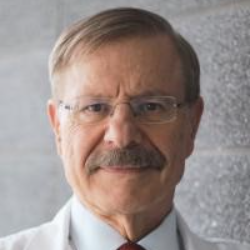
Robert Inman
Robert Inman, MD is Co-Director and Senior Scientist at UHN’s Schroeder Arthritis Institute at Krembil Research Institute, a Professor of Immunology at UofT, and the clinical co-chair of Ci2i. He is also Deputy Physician-in-Chief of Research and Co-Director of the Spondylitis Program at UHN and Past-President of the Spondyloarthritis Research Consortium of Canada. He is a distinguished leader in the field of autoimmune disease, with a focus on spondyloarthritis. His translational research program is directed toward clarifying the interactions between infection and autoimmunity and the role of environmental-genetic interplay in the immune-pathogenesis of arthritis. His program involves translational studies of the immunobiology of spondylitis and related forms of arthritis, animal models of infection-induced arthritis and autoimmunity, and the cell biology of host-pathogen interactions.
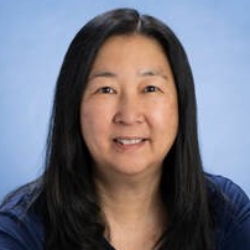
Pamela Ohashi
Pamela Ohashi, PhD, FRSC is a Senior Scientist at UHN’s Princess Margaret Cancer Centre (PM), a Professor of Immunology at the University of Toronto (UofT) and leads Ci2i. She also established and directs the Tumor Immunotherapy Program (TIP) at PM that includes state-of-the-art platforms for Cell Manufacturing of cell and gene therapy products, as well as Immune Profiling with in-depth correlative analysis of specimens from investigator-initiated and industry-sponsored trials. She is an international leader in basic and translational immunology research with a focus on understanding the biology surrounding CD8 effector cells. Throughout her career, she has significantly contributed to our current understanding of T cell tolerance and activation and the impact of CD8 subsets and metabolic programming on immunity. More recently, she has discovered key roles for the innate immune system in regulating anti-viral and anti-tumor T cell responses. In 2008, she co-founded and is the Inaugural President of the Canadian Cancer Immunotherapy Consortium, and previously served as Chair of the American Association for Cancer Research’s Cancer Immunotherapy Steering Committee and as a member of the Board of Directors for the Society for Immunotherapy of Cancer.
Chair of the Planning Committee
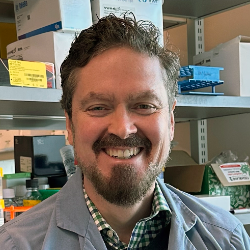
Tracy McGaha
Dr. McGaha earned his Ph.D. in 2002 from the Mount Sinai School of Medicine and New York University under the mentorship of Professor Constantin Bona. He then joined Rockefeller University as a postdoctoral fellow in the Leonard Wagner Laboratory of Molecular Genetics and Immunology, working under Professor Jeffrey V. Ravetch. During his tenure at Rockefeller, Dr. McGaha investigated the mechanisms of inhibitory receptor signaling in the prevention of inflammatory pathology and autoimmune disease. In 2006, Dr. McGaha established his own laboratory at Temple University in Philadelphia, where he studied the role of tissue-resident macrophages in peripheral tolerance. In 2008, he relocated his research group to the Medical College of Georgia, focusing on how microenvironmental sensors influence innate immune function in cancer and autoimmune diseases. Following recruitment by Dr. Pam Ohashi, Dr. McGaha joined the University of Toronto and the Princess Margaret Cancer Centre in 2015. His research continues to explore the tumor microenvironment, innate immunity, and their impact on cancer outcomes. Currently, he serves as a Senior Scientist in the Tumor Immunotherapy Program at the Princess Margaret Cancer Centre and as a Professor in the Department of Immunology at the University of Toronto. His research interests center on understanding the interplay between cell death, inflammation, and metabolic stress sensors in macrophage function, as well as the crosstalk between the microbiome and immune cells in the context of cancer therapy resistance.
Ci2i Executive Committee
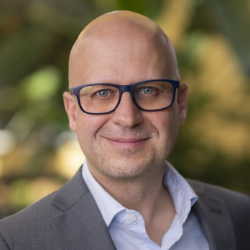
Luke Brzozowski
Luke Brzozowski, PhD is the Executive Director for Translational Research and Cores Facilities at UHN with a portfolio that covers over 20 business units and a number of large-scale innovation programs. He also leads Techna Development Team, made of project managers, engineers, and software developers who lead, manage, and carry out health innovation programs and projects in a hospital environment. Luke also heads the Diagnostic Research Office for the Joint Department of Medical Imaging and Laboratory Medicine Program at UHN and is the executive sponsor for the Theranostics Program at UHN. Over the last few years Luke served as the President of the board of CanProbe, a startup in the field of molecular imaging and theranostics. Prior to joining UHN, Luke held management positions in the development, marketing, legal, and regulatory departments in the health technology industry and pharmaceutical CRO. Luke is the recipient of the 2003 Governor General’s Gold Medal for his Doctorate in nanotechnology and nonlinear optics from the University of Toronto.
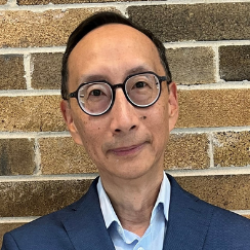
Heman Chao
Heman Chao, PhD is currently the Oncology Team Lead, Licensing and Commercialization at the University Health Network. Prior to this, he held significant leadership roles in the biopharmaceutical industry, most recently as Chief Scientific Officer and CEO at Helix BioPharma Corp., where he focused on developing immuno-oncology therapies.
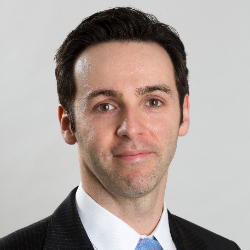
Slava Epelman
Slava Epelman, MD, PhD is a Scientist at UHN, Clinician-Scientist at the Peter Munk Cardiac Centre, Associate Professor of Medicine at UofT and Loretta Rogers Chair in Immunobioengineering. He is an expert in immuno-cardiology, and the use of high-dimensional data sets to explore immune cell function in models of viral infection. Moreover, a key focus of his lab is to understand how cardiovascular risk factors modulate tissue injury in response to viral infection. Dr. Epelman has multiple publications focused on understanding how viral myocarditis develops into heart failure, how single-cell transcriptomic analyses underlie recovery of tissue injury, as well as understanding the conservation of macrophage subtypes across organs and species.
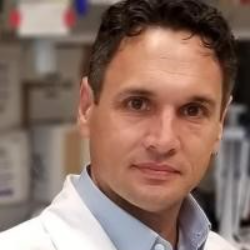
Adam Gehring
Adam Gehring, PhD is a Senior Scientist at UHN’s TGHRI and Associate Professor in the Department of Immunology at UofT. His research is focused on identifying pathways and targets that can be harnessed to improve liver disease outcomes, primarily in the context of chronic HBV and HCV infections. He has extensive experience in profiling immune responses to HBV infections and was the first to develop a novel gene therapy approach to restore missing HBV-specific T cells in chronically infected patients. This work led to two patents that were licensed to Gilead Sciences and Roche. He sits on the Governing Boards of the International Coalition to Eliminate Hepatitis B and the Hepatitis B Forum for Collaborative Research and serves as the co-chair for the International Coalition to Eliminate HBV Immunology group and the HBV Forum Immune Monitoring Workgroup. Through these roles, he contributed to position papers on the Roadmap to Hepatitis B Cure and the implementation of immunological analysis in hepatitis B phase 1 & 2 clinical trials. More recently, he was lending his technical expertise on modelling HCV infection to examine HCV immunopathogenesis, liver inflammation with the goal to develop urgently needed HCV vaccine.
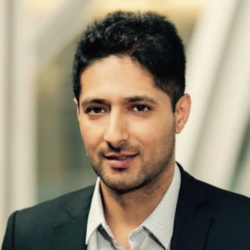
Mohit Kapoor
Mohit Kapoor, PhD is the Tier 1 Canada Research Chair in the mechanisms of joint degeneration and Tony and Shari Fell Chair in Arthritis Research. He is the Co-Director of the Schroeder Arthritis Institute, University Health Network. He is also a Full Professor in the Department of Surgery and the Department of Laboratory Medicine and Pathobiology at the University of Toronto. Dr. Kapoor is the Director of the Collaborative Specialization in Musculoskeletal Sciences. Dr. Kapoor's research program is directed towards understanding the complex pathophysiology of osteoarthritis (OA) and identifying new therapeutic strategies to counteract the destruction of the articular cartilage during OA. His expertise is in the field of osteoarthritis, cartilage degeneration, fibrosis, biomarkers, autophagy, microRNAs, genetically modified mice, molecular/cellular biology, animal models of disease and OA Tissue Biobank with varying degree of OA disease severity.

John Kuruvilla
John Kuruvilla, MD, FRCPC, is an Associate Professor of Medicine at the University of Toronto and a Clinical Investigator in the Division of Medical Oncology and Hematology at Princess Margaret Hospital in Toronto. He is a hematologist and member of the Lymphoma Program and the Autologous Blood and Marrow Transplant program. Dr. Kuruvilla’s research interest is the development of novel therapeutics in lymphoid malignancies and incorporating translational research into clinical trials. He is the Lymphoma Co-Chair for the Canadian Cancer Trials Group (CCTG) as well as the Chair of the Scientific Advisory Board of Lymphoma Canada.
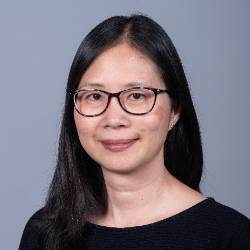
Linh Nguyen
Dr. Nguyen obtained her PhD in Immunology at the University of Toronto and pursued postdoctoral studies at Harvard Medical School. She has led the Cell Manufacturing Team of the Tumor Immunotherapy Program at the Princess Margaret Cancer Centre since its inception in 2005. She is now the Head of the Centre for Cell Manufacturing at UHN. Her team has manufactured cell and gene therapy products for early phase clinical trials such as tumor-infiltrating lymphocytes (TILs), T-cell receptor (TCR)-engineered T cells and chimeric antigen receptor (CAR)-T cells. Her team’s expertise includes process and analytical development, technology transfer, manufacturing operations, quality testing, quality assurance, and regulatory submissions.

Dana Philpott
Dana Philpott, PhD is a Professor and Associate Chair, Research, in the Department of Immunology at the University of Toronto. She also provides scientific oversight for the gnotobiotic mouse facility at the Temerty Faculty of Medicine, which is the first of its kind in Toronto to offer germ-free and defined-community gnotobiotic mice as well as pet store mice. Dr. Philpott’s research employs animal models of inflammatory bowel disease (IBD) and colorectal cancer and considers how innate immunity and the microbiome shape immune homeostasis within the intestine. Dr. Philpott’s work aims to define new disease mechanisms and potential targets for therapy for these increasingly prevalent intestinal disorders. With Ci2i, Dr. Philpott will establish a Microbiome Platform bridging basic and clinical cancer researchers with the goal to accelerate the translation of microbiome-based research into potential new approaches for cancer treatments.
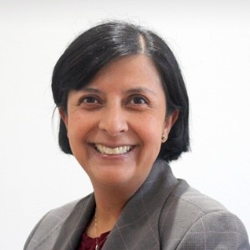
Olga Rojas
Olga Rojas, MD, PhD is an Early Career Researcher (ECR) and a Scientist at the Krembil Research Institute, UHN and an Assistant Professor of Immunology at UofT. During her postdoctoral studies, she focused on understanding the role of B cells as key mediators of the gut-brain axis in neuroinflammation. She was able to challenge the traditional view of Plasma cells as being pathogenic by demonstrating that some gut microbiome-IgA+ plasma cells can be mobilized into non-intestinal tissues (such as the brain) during inflammation to perform immunoregulatory functions by producing IL-10. She began her independent research position in the fall of 2020, which coincided with the second wave of the COVID-19 pandemic. Nevertheless, she was able to participate at understanding the role of Spike and RBD antibodies during SARS-CoV-2 infection and vaccination. Her group has expertise at immunophenotyping and tracking Plasma cells and antibody secreting cells in several tissues by using novel mouse models and research tools such as multiparameter flow cytometry and 3D imaging.

Ben Wang
Ben Wang, PhD is the Head of the Centre for Integrative Immune Analysis at the Princess Margaret Cancer Centre. Dr. Wang and his team work with clinician investigators, scientists, and research staff to enable in-depth immune analysis for clinical and translational studies using advanced immunological assays and bioinformatics pipelines.
Symposium Planning Committee

Firdaus Bakharia
Firdaus Bakharia is an Administrative Assistant at Princess Margaret Cancer Centre, where she provides dedicated support to multiple Principal Investigators, including Dr. Tracy McGaha. With a strong background in administrative coordination, she plays a key role in ensuring the smooth operation of research labs by managing schedules, handling correspondence, and facilitating essential processes. Her expertise in organization and problem-solving allows her to efficiently support the dynamic needs of the research teams she works with.

Natasha Cunha
Natasha Cunha, MHSc is a member of the Research Communications team at UHN. She has a Bachelor of Science and Masters of Health Science from the University of Toronto, and has nearly 10 years of experience in the health care and science space — including in scientific writing, clinical and laboratory research, and sales and business administration in a health care startup. In her free time, Natasha enjoys painting, hiking, Pilates and considers herself a bit of a movie buff.
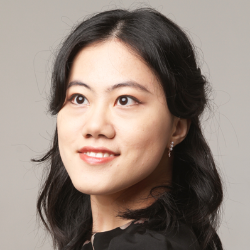
Mimi Guo
Mimi Yuejun Guo is a biomedical communicator specializing in visual storytelling and science communication. As the Communications Specialist at UHN's Princess Margaret Cancer Centre, she produces the popular Meet PM Research scientist profiling series and oversees external communications for research and publications. With a background in pharmacology (B.Sc.) and biomedical illustration and communications (M.Sc.), Mimi combines scientific expertise with creative media to enhance public engagement. Her award-winning health science promotional film was shortlisted by the World Health Organization's Health for All Film Festival, earning international recognition for its impact.
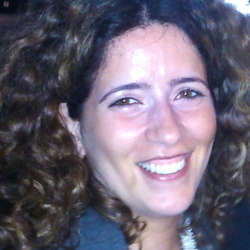
Sara Lamorte
Dr. Sara Lamorte is a Scientific Associate at the Princess Margaret Cancer Centre, working in the laboratory of Dr. Tracy McGaha. Her research focuses on understanding the role of innate immune cells in promoting immune tolerance in cancer progression and autoimmune diseases.
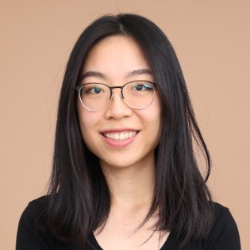
Kitty Liu
Kitty Liu, HBSc is a PhD student in Dr. Tracy McGaha’s lab at the Princess Margaret Cancer Centre, where she is currently investigating the interaction between CD8+ T cells and the microbiota in pancreatic ductal adenocarcinoma. Her research project aims to provide insights into how the microbiota may shape the CD8+ T cell anti-tumour response and ultimately, identify novel immunotherapy via modulation of the microbiota-immunity axis.

Ksenia Meteleva
Ksenia Meteleva, MSc graduated from a thesis-based MSc program in Fundamental Immunology at her alma mater, the University of Toronto. Presently, she is a Project Manager at the Princess Margaret Cancer Centre with Dr. Ohashi group, where she facilitates scientific liaison among UHN clinicians, UofT researchers, and patient partners. In her role, Ksenia is also involved in organizing the 13th Annual Symposium of the Canadian Cancer Immunotherapy Consortium (CCIC 2025). Ksenia is passionate about the field of immuno-oncology and immunotherapy. Her MSc thesis focused on exploring differences in CD8+ and CD4+ T cells within the tumor immune microenvironment of high-grade serous ovarian cancer and metastatic melanoma, using multiplex immune profiling tools. During her time in graduate school, Ksenia served on the UofT’s Governing Council Committee for Honorary Degrees and contributed to selecting future cohorts of exceptional international students for the Lester B. Pearson International Scholarship.
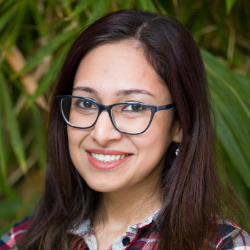
Zoya Retiwalla
With a strong foundation in medical genomics and biotechnology, Zoya Retiwalla specializes in research communications at the intersection of science, health care, and digital engagement. As Research Communications Manager at UHN, she translates complex biomedical innovations into accessible, impactful narratives that bridge the gap between researchers, clinicians, and the public. Her expertise spans strategic science communication, digital storytelling, and academic instruction, reflecting her commitment to advancing scientific literacy and translational research. Passionate about making cutting-edge discoveries more actionable, she leverages her multidisciplinary background to foster meaningful dialogue and drive real-world impact in health care and life sciences.
The Planning Committee would also like to thank UHN’s Conference Services Department for their assistance and support with this event.
Event Date
June 12, 2025
Event Location
MaRS Conference Centre
101 College St,
Toronto, Ontario
Information
Conference Services
conferences@uhn.ca




 Copyright© | MYConference Suite Registration | D.E. Systems | All Right Reserved.
Copyright© | MYConference Suite Registration | D.E. Systems | All Right Reserved.